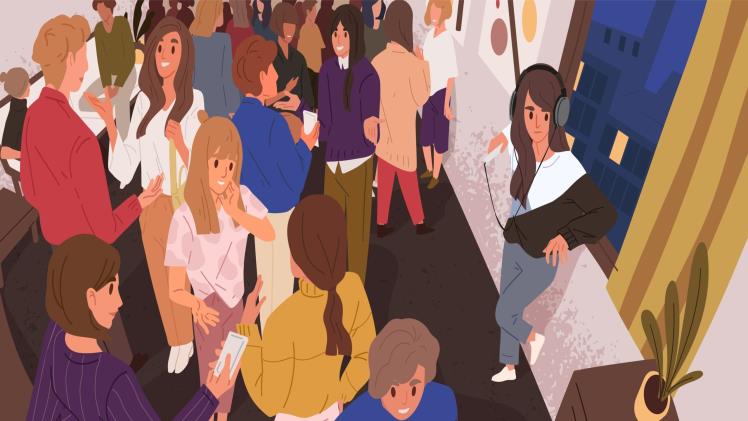At IOP San Diego, we often explore how different cultures impact how people experience and manage social anxiety. Social anxiety isn’t just about feeling shy or nervous; it’s a deeper condition that can vary significantly from one culture to another. By understanding these diverse perspectives, we can learn more effective ways to address and cope with social anxiety.
How Does Culture Influence Social Anxiety?
Culture shapes our behavior, beliefs, and emotions in many ways. In some cultures, great importance is placed on social harmony and group cohesion. In such environments, individuals might feel increased pressure to act according to social norms and expectations, which can heighten feelings of social anxiety. For instance, in many East Asian societies, there’s a strong emphasis on collectivism and respect for others, which can lead to a higher incidence of social anxiety as people worry about not living up to societal standards or embarrassing themselves and their families.
Conversely, Western cultures often promote individualism, where personal achievement and independence are valued. This can also cause social anxiety, as individuals may feel their peers constantly judge them or that they are not achieving enough compared to others around them.
How to Cope with Anxiety?
Coping with anxiety involves several strategies that can be adapted to fit individual needs and cultural backgrounds. At IOP San Diego, we recommend a few key methods:
- Mindfulness and Relaxation Techniques: Practices like meditation, deep breathing exercises, and yoga can help calm the mind and reduce anxiety. These techniques are universally applicable and can be adjusted to fit any cultural context.
- Talk Therapy: Engaging in therapy can be very helpful. Cognitive Behavioral Therapy (CBT) is one effective approach that helps individuals challenge their negative thoughts and change their behavior patterns.
- Building a Support Network: Whether it’s friends, family, or a support group, having people you can talk to and rely on is crucial. This network can vary culturally; some may find support within a large family, while others might seek community groups or online forums.
- Educational Workshops: Learning about social anxiety through workshops can demystify the condition and provide practical coping strategies. These workshops can be culturally tailored to address specific community needs.
How Can I Help My Adult Son with Social Anxiety?
Helping an adult child cope with social anxiety involves support and understanding. Here are some steps you can take:
- Encourage Professional Help: If social anxiety is significantly impacting his life, professional help from places like IOP San Diego can be vital. Therapists can offer tailored advice that respects both individual and cultural backgrounds.
- Be Supportive: Listen without judgment and acknowledge the challenges your son is facing. Support doesn’t mean solving problems for him but being there and showing empathy.
- Educate Yourself: Understanding social anxiety and its cultural components can make you a better supporter. It helps you provide the right encouragement and avoid pushing too hard for changes he might not be ready for.
Why Am I Socially Anxious?
Social anxiety can stem from various sources, including genetics, personality, life experiences, and cultural expectations. If you’re asking this about yourself, it’s important to consider these diverse factors. Many people feel anxious due to past embarrassments or a fear of future failures. Culturally, this could be a contributing factor if you come from a background with significant pressure to perform or conform.
Understanding your context is crucial in addressing your anxiety. For those at IOP San Diego, recognizing how cultural influences shape your experiences can be a first step toward managing anxiety more effectively.
At IOP San Diego, we recognize that cultural influences on social anxiety are profound and nuanced. Each person’s experience with social anxiety can be deeply intertwined with their cultural background and, thus, requires a compassionate, tailored approach in treatment and support. By understanding and embracing these diverse perspectives, we can all find more effective ways to cope with and overcome social anxiety.

